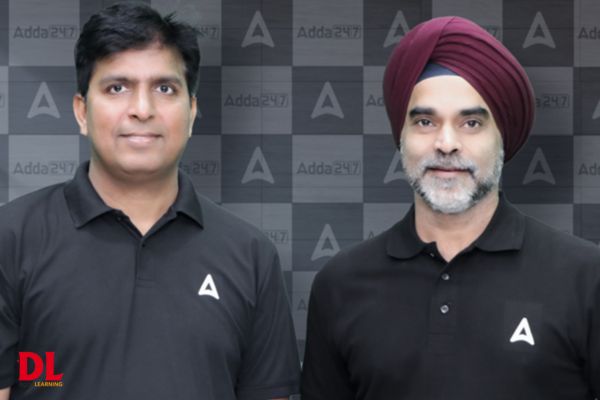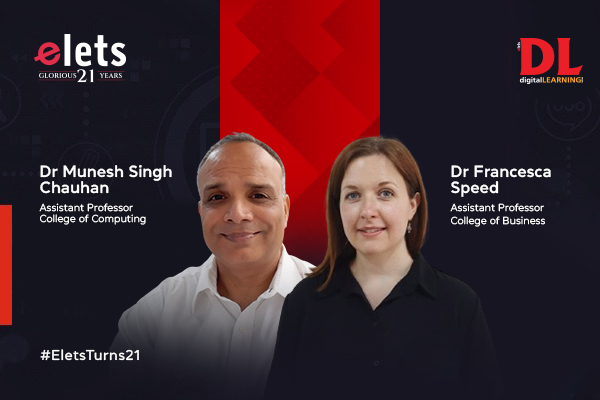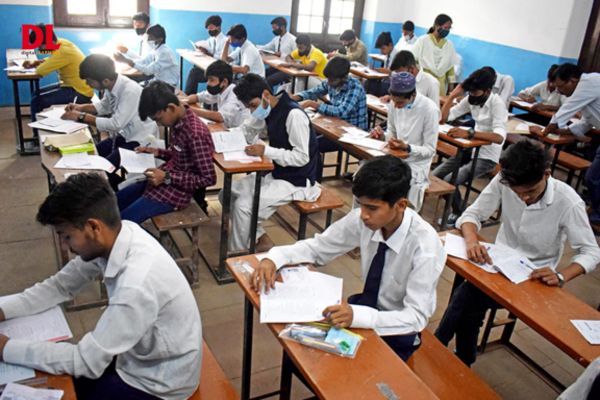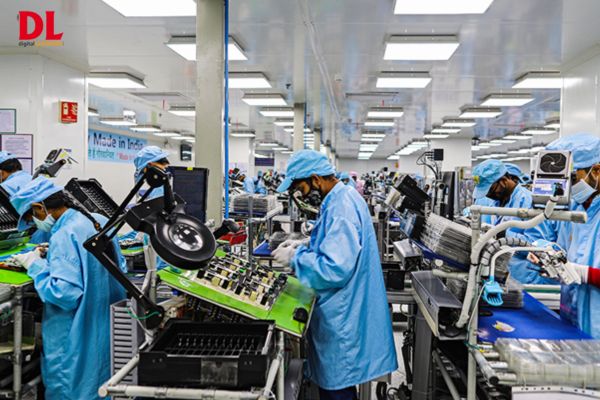In today’s rapidly evolving digital landscape, the imperative for digital competencies among students and staff in higher education institutions cannot be overstated. As technology increasingly interconnects the world, universities globally are acknowledging the importance of arming their communities with the requisite tools and skills to effectively navigate this digital era. The challenge lies not only in providing access to the latest technology but also in fostering a mindset that welcomes change, spurs innovation, and cultivates digital acumen.
Digital skills have become a significant focus in education. Digital literacy, the ability to find, evaluate, create, and communicate information through digital platforms, is widely promoted by universities worldwide. However, digital competencies, which encompass a more diverse and advanced set of skills and attributes, are not as seamlessly integrated into existing curricula. Here, we refer to digital competencies as understanding digital concepts, nurturing creativity within digital environments, mastering practical aspects of hardware and software, adapting and transferring digital knowledge across various contexts, and upholding digital ethics and values.
Despite the global promotion of digital literacy by many universities, digital competencies are often reserved for subject-specific degree programmes. Yet, given the magnitude of digital advancements and their impact on everyday life, it is crucial that universities support all students in developing these skills and attributes, regardless of their degree specialism. Additionally, the current dependence on traditional, one-way, classroom-based learning methods does not provide the dynamic and interactive approach necessary to inspire and engage students across disciplines and study stages. Identifying effective methods and experiential learning opportunities to support individuals across a range of expertise levels is key to enhancing student learning and engagement.
Simultaneously, the growing ethical concerns, especially those related to the use of artificial intelligence (AI), warrant attention. While the integration and use of AI in higher education by both students and educators is garnering increased scrutiny, the responsibility of academic institutions in equipping students with the necessary critical thinking skills and ethical frameworks to navigate the digital landscape remains underdeveloped. The rapid pace of technological advancements further complicates the situation, necessitating universities to proactively update their digital offerings to remain relevant and effective. These challenges highlight the need for a shift in pedagogical strategies to proactively design and implement curricula and extracurricular initiatives that better prepare students for the digital landscape.
These multifaceted digital competencies are vital for students to succeed academically, professionally and socially. As the world continues to evolve, identifying the most effective methods to develop digital competencies has become increasingly significant. The pressing strategic priority is to determine the most effective ways for universities to nurture digital competencies among their students and staff, ensuring equitable access to these learning opportunities across all fields of study.
Digital Month: How EUB Innovates to Enhance Student Digital Skills
Against this backdrop, Euro University of Bahrain (EUB) stands as a leading example of a university proactively fostering the development of digital competencies among its students and staff. A dedicated programme, aptly named “Digital Month,” was meticulously designed to stimulate, engage, and cultivate digital competencies across the University community. Faculty members from various disciplines, together with the IT department, designed and led an array of extra-curricular workshops, competitions, and sessions. EUB’s Digital Month, open to all staff and students regardless of their field of study and expertise, was more than a series of events; it was a testament to the University’s commitment to enhancing digital competencies in an effective, engaging, and dynamic manner.
The Digital Month Launch Event marked the beginning of the festivities, offering attendees an overview of the inspiring programme planned for the month ahead. A diverse panel of digital enthusiasts, including the University President and representatives from the Faculty and the IT department, explored the significance of the digital environment, setting the stage for a month of learning and discovery. This panel discussion served as a platform for fostering meaningful dialogues, posing questions, and reflecting on key themes and ideas to be explored throughout the month.
Among the events was the Apps for Living a Successful Life workshop, where participants delved into the history of application development and discussed the latest global trends and advancements. The workshop, aimed at promoting student engagement, focused on co-creating a free digital resource using Padlet, a collaborative web platform. Students and staff were encouraged to share the apps that aid them in leading productive lives on the Padlet wall in real time, fostering knowledge-sharing and stimulating insightful discussions.
Another notable event was the Emoji Storytelling Workshop. This workshop introduced the concepts of categorisation, codes, and deciphers to students and staff in an engaging and playful manner. While the workshop delved into more complex codes and means of categorisation, the use of emojis sparked interest due to their accessible and relatable nature. Deciphering emoji stories offered a simple yet effective way of introducing the concept of categories and deciphers. Exciting team challenges helped to hone students’ problem-solving and teamwork skills, providing a more experiential, dynamic, and engaging approach to learning, surpassing the limitations of traditional, didactic methods. To maximise hands-on learning experiences, EUB organised the Excel Masterclass. This event was not merely a traditional workshop but an engaging platform that enabled students, irrespective of their prior Excel experience, to develop practical spreadsheet skills in an open, interactive setting.
In response to the escalating relevance of coding in today’s world, EUB’s Computer Science students delivered an Introduction to Coding Session. This session, a testament to the innovative flipped classroom approach, revolutionised the traditional learning paradigm. It empowered students to present, thereby transcending the limitations of one-way classroom learning. This interactive experience not only offered invaluable insights into the intricacies of coding and allowed participants to test games under development, but also underscored the importance and applicability of coding skills in today’s digital age. The benefits of this approach, such as promoting active learning, fostering student engagement, and enhancing understanding through teaching, were evident. It enabled all participants, irrespective of their prior experience, to delve deeper into the captivating world of coding and game development, rendering the learning experience more dynamic, inclusive, and attuned to the demands of the modern world. The discussion generated at the coding session resulted in collaborative and creative ideation, inspiring the design and development of new digital animations, cartoons, and symbolic characters.
A standout event of the month was the Student Poster Show, where our enthusiastic students showcased their research and ideas. Topics of high social value, including cybersecurity and smart cities, were covered, providing an opportunity for reflection on future benefits and concerns. These thought-provoking posters offered a glimpse into a crucial part of research dissemination, emphasising the power of concise visual communication. As the month progressed, attendees also had the chance to engage in stimulating discussions relating to peer-reviewed, high-impact research. EUB hosted a research lecture, presented by Professor Andrew, EUB President, exploring digital developments from Wi-Fi to 5G, providing real-world examples of research impact and innovation in the digital age. This public event provided students and staff an opportunity to network and enhance their interpersonal skills.
The programme included an interdisciplinary debate on the ethics of AI, involving both students and faculty. The spirited discussion revolved around the benefits, possibilities, and opportunities of AI. Alongside the optimism, valid concerns were raised about accuracy, biases, and the ethical considerations that accompany the integration of AI into various aspects of society. While the debate outlined the undeniable progress that can be made with AI, the discussion underscored the importance of ethical considerations in the design and implementation of AI systems, emphasising the responsibility to safeguard against potential negative consequences. The debate fostered ethical reflection, critical thinking and the ability to argue a point from contrasting viewpoints.
Digital Month featured a diverse range of competitions, from coding challenges to debating contests, providing students with numerous opportunities to interact with the digital realm in a dynamic and engaging way. A gamification approach was adopted, whereby points were awarded for both engagement and achievement, fostering a sense of accomplishment among students. A live online scoreboard allowed students to track their progress in real-time throughout the month, adding an element of excitement and competition. A dedicated closing ceremony marked the end of Digital Month 2024, with reflections on the future of the digital world and AI from the University President. The awarding of prizes at the closing ceremony played a significant role in the initiative’s success, serving as tangible recognition of the students’ efforts and achievements.
The successes of Digital Month testify to its effectiveness in addressing the challenges currently faced by higher education institutions. By creating a platform for experiential learning, EUB is successfully transitioning away from traditional one-way classroom-based learning methods prevalent in the sector. Collaborations across teams during the design and implementation of Digital Month were instrumental in fostering creative and interdisciplinary approaches to developing digital competencies, resulting in a programme that was both relevant and effective in its scope. As such, Digital Month serves as a compelling case study that could be used as a benchmark for other universities.
In conclusion, the cultivation of digital competencies is essential for preparing students for today’s world. Universities, such as Euro University of Bahrain, should assume a pivotal role in supporting this development. Many institutions fall short in equipping their students with the skills necessary for future real-world success, focusing instead on delivering a knowledge-based curriculum. EUB is taking significant strides to equip its community with the necessary skills needed to thrive in the digital era. By offering dynamic and engaging initiatives like Digital Month, replete with opportunities for hands-on learning and open to all students regardless of degree specialism, universities can empower their communities to flourish in the digital age. As we move forward, it is imperative for universities to do things differently to engage, educate and delight students via interdisciplinary curricula and extracurricular activities that are designed to contrast the normal knowledge-based classroom approach. The forthcoming prosperity of both individuals and societies is intricately linked to the extent of digital readiness currently being fostered within academic institutions.
Views expressed by Dr Francesca Speed, Assistant Professor, College of Business and Dr Munesh Singh Chauhan, Assistant Professor, College of Computing, Euro University of Bahrain





























